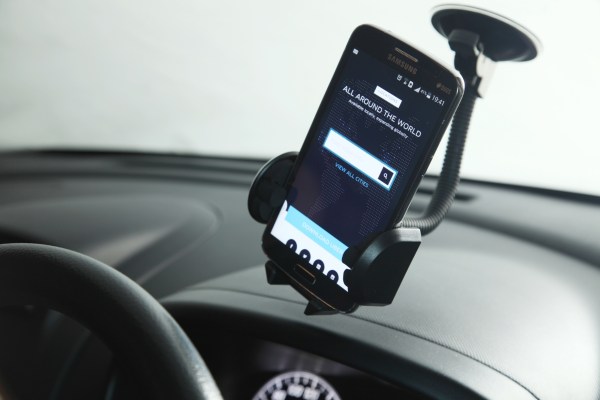Uber’s worldwide expansion plans have hit yet another legal bump. Five Uber drivers were arrested in Hong Kong yesterday, allegedly for operating without a hire car permit and driving without proper insurance. Two of Uber’s local offices were also raided and three staff members detained, according to the the South China Morning Post.
Hong Kong police senior inspector Bruce Hung told reporters that undercover police officers used an app to call five cars and arrested the drivers after reaching their destination.
The arrests come a few weeks after protests against Uber and other car-hailing apps began to intensify, with traditional taxi drivers claiming that their counterparts operate without a hire car permit. During a demonstration at the end of July, To Sun-tong, a spokesman for the Motor Transport Workers General Union, said some of its members had seen their revenue drop by 20 percent due to the proliferation of car-hailing apps like Uber.
While Uber checks if drivers have mandated third-party insurance as part of its standard screening process, it is unclear is if the company requires—or plans to require—drivers to hold a hire car permit.
In a statement to the press, Harold Li, Uber’s North Asia spokesman, said:
“Hongkongers have made it clear that they want more, better transportation options in our city, and Uber is deeply committed to making sure they have unrestricted access to safe, reliable, quality options. Drivers who partner with Uber do so to take advantage of the flexibility and earning potential our lead generation technology allows. Uber ensures that all rides are covered by insurance, and all drivers on the platform undergo an extensive background check. We stand by our driver-partners 100% and welcome the opportunity to work closely with the authorities towards updated regulations that put the safety and interests of riders and drivers first.”
The company has previously described Hong Kong as its “regional headquarters,” while the government welcomed Uber with open arms. InvestHK, an agency set up to attract foreign investment, presented the company as a “success story” on its website.
That page was removed yesterday, however, and InvestHK posted a statement saying “there are legal ways in Hong Kong for companies to offer car rental services via mobile applications, but not all mobile car booking applications can meet the legal requirements in Hong Kong. As Uber is now being investigated for allegedly operating outside of the legal ambit, as a standard procedure InvestHK has removed the case study from its website.”
Reportedly valued at over $50 billion after its most recent funding round, Uber’s international expansion plans have come with a series of headaches as it runs into legal issues and opposition by traditional taxi operators in new markets. The most high-profile of these were demonstrations in France that turned violent as taxi drivers protested UberPOP. Similar to their Hong Kong counterparts, cabbies were upset that UberPOP uses drivers who have not applied or paid for a special license. The service was later suspended in France.
Part of the problem is that there are very few laws regulating Uber’s business model, creating confusion for the company and governments. Uber’s stance that it isn’t subject to the same rules as traditional taxi companies because it is a technology platform that connects drivers and passengers instead of operating its own fleet of vehicles has been rejected by city authorities in India, China, and South Korea.
One country that has taken a more conciliatory (and arguably pragmatic) approach is the Philippines, which introduced regulatory framework in May specifically designed for ride-sharing apps like Uber.
